
Genetic Programming and Evolvable Machines
metrics 2024
Pioneering Research in Machine Learning Evolution
Introduction
Genetic Programming and Evolvable Machines, published by SPRINGER, is a leading journal dedicated to the fields of genetic algorithms, evolutionary computation, and machine learning. With an ISSN of 1389-2576 and an E-ISSN of 1573-7632, this esteemed journal encompasses original research articles, reviews, and applications that explore the intricate relationships between intelligent systems and evolutionary processes. As of 2023, it holds a notable Q2 ranking in various categories including Computer Science Applications and Hardware and Architecture, reflecting its significant impact in advancing knowledge and methodologies within these domains. The journal's metrics, including a top rank of #31/130 in Theoretical Computer Science, signify its relevance and contribution to the broader academic community. Though not open access, papers published in the journal continue to serve as critical resources for both researchers and practitioners, promoting innovative methodologies and solutions. Covering a broad scope with a convergence extending from 2003 to 2024, this journal remains a pivotal platform for sharing cutting-edge research that shapes the future of artificial intelligence and computational theory.
Metrics 2024
 0.55
0.55 1.70
1.70 2.80
2.80 44
44Metrics History
Rank 2024
Scopus
IF (Web Of Science)
JCI (Web Of Science)
Quartile History
Similar Journals

IEEE Computational Intelligence Magazine
Pioneering Research for a Smarter TomorrowIEEE Computational Intelligence Magazine, published by the esteemed IEEE-INST ELECTRICAL ELECTRONICS ENGINEERS INC, is an essential resource for researchers and professionals in the fields of Artificial Intelligence and Theoretical Computer Science. With a robust Q1 ranking in both categories for 2023, this magazine stands out as a leader in disseminating cutting-edge research and innovative applications within computational intelligence. As an invaluable conduit for knowledge, it covers a diverse range of topics, including but not limited to machine learning, neural networks, and data mining. The magazine is particularly recognized for its interdisciplinary approach, bridging gaps between theory and application while contributing to advancements in technology and society. Although it does not offer open access, the insights provided are critical for staying at the forefront of this rapidly evolving discipline. Join a community of like-minded scholars and practitioners by exploring the latest findings and trends published from 2006 to 2024, operating from its headquarters at 445 Hoes Lane, Piscataway, NJ, United States.
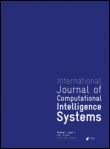
International Journal of Computational Intelligence Systems
Connecting Researchers with Cutting-Edge InsightsInternational Journal of Computational Intelligence Systems, published by SPRINGERNATURE, is a leading open-access journal that has been at the forefront of research in the field of computational intelligence since 2008. With an ISSN of 1875-6891 and an E-ISSN of 1875-6883, this journal occupies a prominent place in the academic landscape, achieving impressive rankings in its categories: Q2 in both Computational Mathematics and Computer Science (miscellaneous), reflecting its significance and relevance to researchers, professionals, and students. Based in Switzerland, the journal is committed to disseminating high-quality research and fostering innovation in computational methodologies, algorithms, and applications. Its strong impact factor and Scopus rankings—31/189 in Computational Mathematics and 53/232 in General Computer Science—underscore its critical role in advancing knowledge in these interdisciplinary fields. As an open-access journal, it provides unparalleled accessibility to cutting-edge research, supporting the global community in staying at the forefront of computational intelligence advancements.
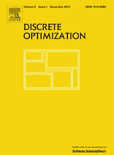
Discrete Optimization
Illuminating the Path of Discrete Optimization ResearchDiscrete Optimization is a leading academic journal published by Elsevier, focusing on the pivotal field of discrete optimization, which plays a crucial role in various domains including applied mathematics, computational theory, and theoretical computer science. With its ISSN 1572-5286 and E-ISSN 1873-636X, the journal offers a platform for researchers to disseminate their findings and contribute to the advancement of knowledge in discrete methodologies and algorithmic strategies. Discrete Optimization has demonstrated a steady path of progress, recognized in 2023 with a Q3 quartile ranking across applied mathematics, computational theory, and theoretical computer science categories, indicating it is a respected journal within these competitive fields. Although currently a subscription-based journal, it continues to inspire innovative research and offers valuable insights for researchers, professionals, and students alike. The journal serves as an essential resource for those seeking to deepen their understanding and application of optimization techniques, contributing to the ongoing evolution of the discipline.

PROGRAMMING AND COMPUTER SOFTWARE
Innovating Programming Methodologies for Tomorrow's ChallengesPROGRAMMING AND COMPUTER SOFTWARE is a distinguished journal committed to advancing the field of software development and programming methodologies. Published by PLEIADES PUBLISHING INC, this journal has been a valuable resource since its inception in 1978, reaching out to researchers, professionals, and students alike. With an emphasis on rigorous peer-reviewed articles, the journal holds a Q3 ranking in the realm of Software according to the latest 2023 Category Quartiles. Though it does not offer open access, the journal ensures that high-quality research is disseminated to its audience, providing insights into evolving programming techniques, software engineering challenges, and innovative solutions. With its convergence of years extending to 2024, PROGRAMMING AND COMPUTER SOFTWARE remains a pivotal publication, fostering a deeper understanding of the complexities in computer programming while supporting the broader software community.

ACM Communications in Computer Algebra
Innovating Computational Mathematics and TheoryACM Communications in Computer Algebra is an influential peer-reviewed journal published by the Association for Computing Machinery (ACM), dedicated to advancing the field of computer algebra. With its ISSN 1932-2232 and E-ISSN 1932-2240, the journal serves as a crucial platform for disseminating innovative research that intersects computational mathematics and theoretical computer science. As evidenced by its category quartiles, it holds a notable Q3 ranking in both Computational Mathematics and Computational Theory and Mathematics for the year 2023, reflecting its commitment to fostering rigorous scholarship. Although it remains a non-open access publication, the journal provides vital insights and findings that contribute significantly to the academic dialogue within these domains. Researchers, professionals, and students alike can rely on its curated content to stay abreast of advancements, applications, and methodologies pertinent to computer algebra, especially throughout its publishing epochs from 2011 to 2021, and resuming in 2023 through 2024.
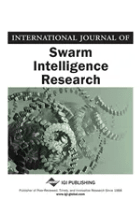
International Journal of Swarm Intelligence Research
Advancing Knowledge in Artificial Intelligence DynamicsInternational Journal of Swarm Intelligence Research, published by IGI Global, stands at the forefront of research in the dynamic field of artificial intelligence, focusing specifically on swarm intelligence and its applications. With an ISSN of 1947-9263 and an E-ISSN of 1947-9271, this journal has carved a niche within academia since its inception, boasting a commendable Q3 rank in the categories of Artificial Intelligence, Computational Theory and Mathematics, and Computer Science Applications as of 2023. The journal spans vital research from the years 2017 to 2024, fostering an environment that welcomes innovative studies that apply natural systems principles to computational methodologies. Although not classified as Open Access, the journal remains accessible to a broad audience, providing vital insights and fostering discussion among researchers, professionals, and students delving into cutting-edge swarm intelligence topics. As such, this journal is an essential resource for those aiming to advance their understanding and application of these transformative technologies.

JOURNAL OF SUPERCOMPUTING
Advancing the Frontiers of Supercomputing ResearchJOURNAL OF SUPERCOMPUTING is a premier academic journal published by SPRINGER, situated in the Netherlands, that has made significant contributions to the fields of computer science, particularly in hardware and architecture, information systems, software, and theoretical computer science. With a robust publication history spanning from 1987 to 2024, this journal has cultivated a strong reputation, evidenced by its Category Quartiles ranking in the Q2 category across multiple relevant domains in 2023. The journal's Scopus rankings further underscore its influence, boasting a 78th percentile in mathematics and theoretical computer science, revealing the high quality of research disseminated within its pages. As vital discourse unfolds in the realm of supercomputing—where innovative techniques and technologies rapidly evolve—this journal serves as a crucial platform for researchers, professionals, and students to explore cutting-edge studies and build upon the foundations of knowledge in this dynamic field.
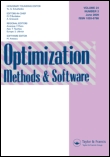
OPTIMIZATION METHODS & SOFTWARE
Pioneering Research in Optimization Techniques and Software SolutionsOPTIMIZATION METHODS & SOFTWARE, published by Taylor & Francis Ltd in the United Kingdom, is a premier journal dedicated to the field of optimization and software development. With an impressive impact factor, this journal maintains a critical role in advancing research in applied mathematics, control, and optimization, as evident from its categorization in the prestigious Q1 quartile for both applied mathematics and control and optimization, and Q2 in software for the year 2023. Over its publication span from 1992 to 2024, it has garnered significant recognition, ranking #116 out of 635 in applied mathematics and #29 out of 130 in control and optimization according to Scopus. The journal provides a platform for innovative research outcomes, theoretical advancements, and novel algorithms that aid researchers, professionals, and students in tackling complex optimization problems. Whether you are looking to disseminate your latest findings or explore cutting-edge methodologies, OPTIMIZATION METHODS & SOFTWARE remains an invaluable resource in the field.
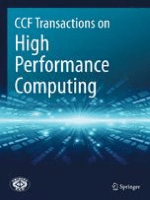
CCF Transactions on High Performance Computing
Exploring Breakthroughs in High-Performance Computing ResearchCCF Transactions on High Performance Computing, published by SPRINGERNATURE, is an esteemed academic journal dedicated to advancing research in the field of high-performance computing. With an ISSN of 2524-4922 and E-ISSN of 2524-4930, this journal provides a platform for disseminating innovative findings, methodologies, and technologies that shape computational practices within various domains. Operating from Germany, it serves a global audience, reinforcing its impact through an impressive categorization in the Q3 quartile across multiple fields, including Computer Science Applications and Information Systems. The journal, which covers research from 2019 to 2024, plays a crucial role in bridging gaps between theory and practical implementation in hardware architecture and software systems. Although it is not an open-access journal, its contributions are invaluable for researchers, professionals, and students invested in the continuous evolution of high-performance computing. With Scopus rankings that highlight its relevance and influence in the academic community, CCF Transactions on High Performance Computing remains a key resource for the latest developments in this dynamic and rapidly evolving discipline.

Bulletin of the South Ural State University Series-Mathematical Modelling Programming & Computer Software
Fostering Collaboration in Mathematical Modeling and Software DevelopmentThe Bulletin of the South Ural State University Series-Mathematical Modelling Programming & Computer Software is a distinguished academic journal focusing on the interdisciplinary fields of mathematical modeling, programming, and software development. Published by the SOUTH URAL STATE UNIVERSITY, SCIENTIFIC RESEARCH DEPARTMENT, this journal serves as a platform for the dissemination of innovative research findings, methodologies, and applications in computational mathematics and related disciplines. With its ISSN 2071-0216 and E-ISSN 2308-0256, it has garnered attention within the research community, reflected in its rankings within the Q4 quartile across multiple categories in 2023, including Computational Mathematics and Software. Although it operates under an open access model, the journal emphasizes the importance of high-quality, peer-reviewed content to advance research education and practice in the Russian Federation and beyond. Researchers, professionals, and students are encouraged to contribute and access valuable insights, fostering collaboration among disciplines spanning mathematical theory, computational methods, and software development.